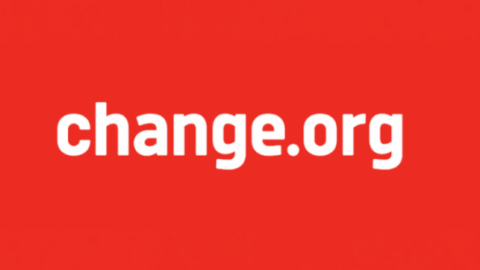Youthhubafrica’s Rotimi Olawale caught up with Alhaji Inuwa Abdulkadir, the Nigerian Minister for Youth Development for an exclusive interview at the sidelines of the Conference of ministers of Youth IV (COMYIV) at the African Union Headquarters in Addis Ababa, Ethiopa. Read the excerpts below
Q: Honourable Minister of Youth, Federal Republic of Nigeria, thanks for granting us the opportunity for this interview
A: You’re welcome
Q: Can you please tell us the benefits of this participation to the Nigerian Government and the youth of Nigeria?
A: The benefit of the participation is huge. We are here with other sister African countries, the whole of the continent is here. We shared our own experiences in respect of youth development matters and various resolution that was passed in previous conferences which required follow-ups. As a result of which we learnt a lot from the experiences from other African Union member states and we also shared our experiences on what we have been doing in Nigerian in respect of youth development especially empowerment and mainstreaming. It’s a wonderful thing, because, Nigeria has a lot of peculiarities. What we discussed and resolved will be of benefit to the African continent especially young people.
Q: Nigeria has made a lot of progress around some of the issues that were discussed here. Many of the countries here don’t even have a national youth policy, I am aware Nigeria has one; just a number of countries have ratified the African Youth Charter, Nigeria is one of such but the next stage is implementing the recommendations in these policies, what are the plans of the youth ministry to move ahead in implementing these policies and decisions coming out of these meetings.
A: The mechanism is largely on the issue of mainstreaming through which you can implement a number of decisions taken, because youth matters, ‘the policy issues and other issues are solely the mandate of the Ministry of Youth Development in Nigeria but the issues in the policy and the charter are inter-sectoral, there are educational issues, agriculture and health issues contained in the charter and the Nigerian youth policy which certainly be possible for you to implement if you synegise with other sectors and you can do that through mainstreaming.
Q: How are young people in Nigeria involved in decision making and Governance at all levels and how will you run an open door policy for young people in Nigeria to have access in reaching you?
A: For some time now, we have started the Nigerian Youth Parliament. It is in the second session. The idea of the parliament is to mentor the Nigerian youth towards appreciating the political landscape first; the political game being played in the most decent manner and we have been able to produce a number of ex-youth parliamentarians through the Nigerian youth parliament that have now joined the mainstream politics as members of parliament in their own states. Secondly, even the constitution, there are some leverage especially at the grassroot level which allows a number of youth who fall within the youth bracket to participate in local governance as councillors, chairmen at local government level. If you look at the population, it’s an understatement to say that youth are not participating because they constitute a majority of the population. When you have a population where the youth constitute more than 50% of the population. Young people between 18-35years constitute about 80million of the population and they are within the voting age and are participating in the voting process. Youth largely dictate through their votes who emerge as political leaders in Nigeria. Secondly, even the election officiating, largely, if not all the adhoc staff that conducted the elections are managed by youth who are members of the National Youth Service Corps especially in the last 2 elections. You can recall that the last election was commendable and regarded as one of the most credible elections in recent times. These are people (NYSC Corps Members) within the ages of 18 – 29 years not even 35 that ran the elections. One can say with all sense of pride that Nigerian youth are being engaged in running the affairs of the polity and are in politics. Of course, one of the biggest challenges we have is the large number of unemployed youth. About 37.5% of Nigerian youth are currently unemployed. This has to do with the global economic meltdown and the decay of so many infrastructures, institutions and industries which is a global issues, over-reliance on oil and not exploting the potentials in agriculture with the abundant arable land we have and government is currently working hard to harness Nigeria’s potentials and create jobs.
 Q: With the recent attempt by the parliament in Nigeria to ammend the constitution, there have been calls in several quarters by young people to amend the part of the constitution that limit their participation in certain offices especially the National Assembly, Governorship and others. What’s your take on this? Will you support reducing the age barrier to contesting elections into certian position? In South Africa for example, once you’re 18years you have the right to vote and be voted for at any level of government?
Q: With the recent attempt by the parliament in Nigeria to ammend the constitution, there have been calls in several quarters by young people to amend the part of the constitution that limit their participation in certain offices especially the National Assembly, Governorship and others. What’s your take on this? Will you support reducing the age barrier to contesting elections into certian position? In South Africa for example, once you’re 18years you have the right to vote and be voted for at any level of government?
A: it is a matter of opinion and approach, it is a debate, every opinion will be listened to. The constitution of Nigeria is structured to be amended if Nigerians so wish through their representatives. So, it is their representatives who will at the end of the day aggregate and engage the appropriate means of ensuring the constitution review and amendment follows a systematic approach. For me, giving everybody an opportunity is not out of place, because I dont think we should shun away from that fundamental issues. If we go down memory lane, the Nigerian youth, like other african youth, were the driving force towards the attainment of independence of various African countries if not all. They not only spear-headed and resisted colonialism and pioneered the road towards independence, on attainment of independence, substantially it was the youth that led their country towards a developmental foundation. A number of these leaders at independence and post-independence were under 30years. In post independence Africa, most of the military changes that took place were changes by the youth, rightly or wrongly, they pushed the Africa continent forward. One cannot say there was stagnation and one cannot say there were no development during the military era, it is a question of relativity. So, in this era, we can see the volatility of youth globally because of the unlimited access to knowledge and the networking using social media networks, I think it is only right and proper that certain opinions be listened to. Of recent, in some African countries, we witnessed the Arab Spring and mobilisation of youth using social media in Tunisia, Egypt and Libya. One should not decieve himself as to a particular time. Once it comes, certain thhings should be embraced, properly guided and amplified.
Q: Honourable Minister, at the end of your tenure what one thing will you want the Nigerian Youth to remember you for?
A: I was there. I was a young man before. So many people will also graduate to where I am and this is what everybody should realise. It is not a question if Nigerian youth should remember me. It is a service to the nation which is what I have been doing and will continue to do whether at the youth ministry or elsewhere. My thinking and direction for the youth ministry is particularly to pursue policies of mentoring the nigerian youth for a better future not only for himself but for the nIgerian nation. Secondly, also of motivation in the context of mindsetting and producing a number of Nigerian youth to be good citizens with good leadership traits. These are the core important things that are my primary objectives in the ministry of youth development as a minister. Because I do believe that all other things that you intend to do, whether you empower them to become big farmers or industrialists is not going to be possible, you will not achieve it, if you do not condition their minds as to what is expected of them and what they should expect of themselves – not training them to look inward, not training them to be good citizens, patriotic and good leaders of tomorrow, even now.
Q: Alright. Thank you honourable Minister for your time
: It’s a pleasure










